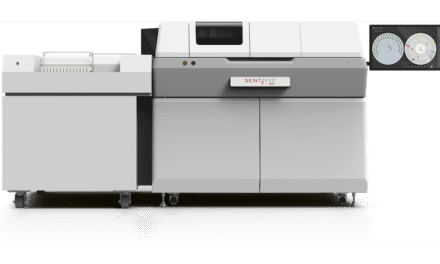Abbott announced today that it has entered into an agreement with GlaxoSmithKline (GSK) to develop an automated molecular diagnostic test, based on polymerase chain reaction (PCR) technology, intended to screen non-small cell lung cancer (NSCLC) tumors for expression of the MAGE-A3 antigen.
GSK’s MAGE-A3 ASCI (Antigen Specific Cancer Immunotherapy) candidate is currently being evaluated as an adjuvant treatment in resected NSCLC in the Phase III clinical study MAGRIT, the largest lung cancer treatment study ever conducted.
To be eligible to receive GSK’s MAGE A3 ASCI, patients must have MAGE-A3 expressing NSCLC tumors. MAGE-A3 is a tumor-specific antigen that is expressed in non-small cell lung cancer and a wide variety of other cancers, but not in normal cells.
Under terms of the agreement, Abbott, in conjunction with GSK, will develop and commercialize a PCR test designed to detect MAGE A3 for use on the Abbott m2000(TM) automated instrument system.
"This is an exciting collaboration with a leading company in cancer immunotherapy research," said Stafford O’Kelly, head of Abbott’s molecular diagnostics business. "The agreement is indicative of our focus on personalized medicine and developing analytical molecular tools to identify patients most likely to benefit from important pharmacogenomic therapies."
Currently, there are no nucleic acid based tests approved by the U.S. Food and Drug Administration for use in identifying patients who may derive treatment benefits from targeted non-small cell lung cancer therapies.
"Lung cancer is the biggest cancer killer globally," said Vincent Brichard, M.D., Ph.D., vice president and head of Immunotherapeutics, GSK. "Through this partnership we aim to make MAGE-A3 testing of lung tumors available in standard pathology labs around the world. This means patients globally could be able to find out if they are eligible and can potentially benefit from targeted cancer treatment against this antigen, such as GSK’s MAGE-A3 candidate ASCI."
Source:




